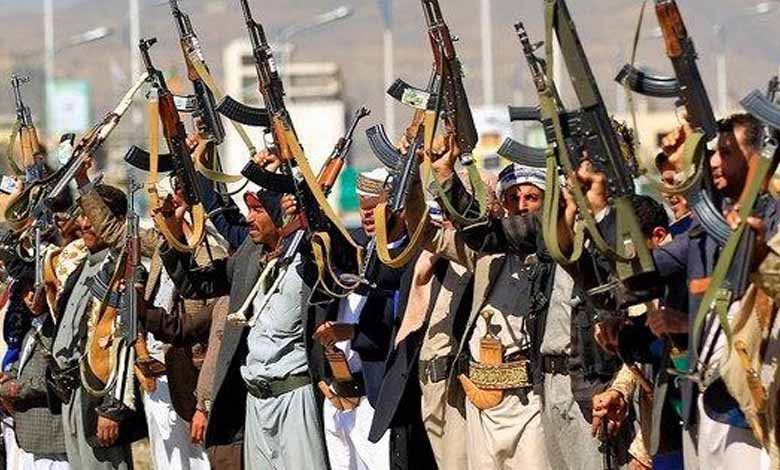Houthi militias exploit the truce period to create huge wealth for their leaders… Iran ignites strong divisions among its ranks

Under the UN-mandated truce between the government and the Houthis, militia members exploited the period to loot money, aid, profit, and transfer weapons to create significant wealth, but it soon became apparent, as is the custom of the thieves, should sharp differences arise.
The Houthis took advantage of the visit of U.S. President Joe Biden to the region to announce their rejection of extending the truce, which has increased the conflict between its leaders and wings and reached the front lines of fighting and assassination. This caused the enrichment of commanders and wings at the expense of others, which led to the sharp division between the supporter of the truce and the rejection of its continuation.
The recent announcement by Houthi militias rejecting the extension of the truce revealed the extent of the relationship between peace and mutual vengeance within the warring factions, which have proven that they live on cycles of war as the main fuel for their continued cohesion and that field commanders remain on the front lines without rebellion or disobedience.
Yemeni sources said that militia leaders rely on war as a source of great enrichment, as Houthi leaders on the front lines have turned into wealthy individuals, real estate owners, and arms dealers from the revenues of war financing and taxes imposed under the cover of “supporting the front”.
The sources added that the Iranian-backed Houthi leaders and militia supervisors at the level of “fronts”, “security zones”, and “governorates”, announced an unprecedented state of discontent and discontent, due to the extension of the truce and the ceasefire resolution, which contributed to the reduction of offensive military operations.
It added that the Houthi militias stopped funding fronts by 50%, which caused field commanders to lose large financial allocations that they had received. It noted that the battles and fighting on the front provide Houthi field commanders, who follow wings competing for major financial concessions, with an opportunity to enrich themselves, which made them view peace as a serious threat to their source of presence and influence.
Houthi militias have also reduced funding for frontlines and families of those killed in death incinerators as part of a Houthi codification tactic in favor of funding what they call “deterrence weapons” – ballistic missiles and drones whose smuggling requires very large financial expenses.
The sources pointed out that Houthi militias have also stopped disbursing financial allocations to the families of their dead, despite deducting large sums of basic services fees for citizens and imposing sums of “zakat” and customs duties on the collection of improvement funds under the name of caring for the “families of martyrs”, as they describe the killers.
It said that the leadership and wings of the Houthi militias used the war as an investment opportunity, and that the truce, whatever the leaders of the first line invested in it, does not benefit their field commanders with the benefit, interest and authority they exercise when fueling the war on the front lines, and activating the conflict of the wings to avoid agreements.
This is why the conflict of wings and the race for interests intensified, in addition to the roles they play as peace wings and hawks who always seek to fuel war. This is to avoid any international and international pressures seeking peace.
There are deep differences between these Houthi factions, and Iran is not precluded from being behind the exacerbation of the conflict between the Houthi militia wings to undermine the peace or truce, which seeks not to keep the militias as a single bloc but as more submissive and submissive blocs.
On Saturday, Houthi militias announced their rejection of the extension of the UN-backed truce, which expires on August 2. In a statement issued by the so-called Supreme Political Council, Houthi militias claimed that “the UN truce was a shocking and disappointing experience that cannot be repeated in the future”.
The humanitarian truce came into effect on 2 April and was renewed on 2 June for an additional two months, as the Yemeni government and the Arab coalition completed implementation of their humanitarian clauses, including the cessation of military operations, despite the escalation of violations by the Iranian-backed Houthi militias.












